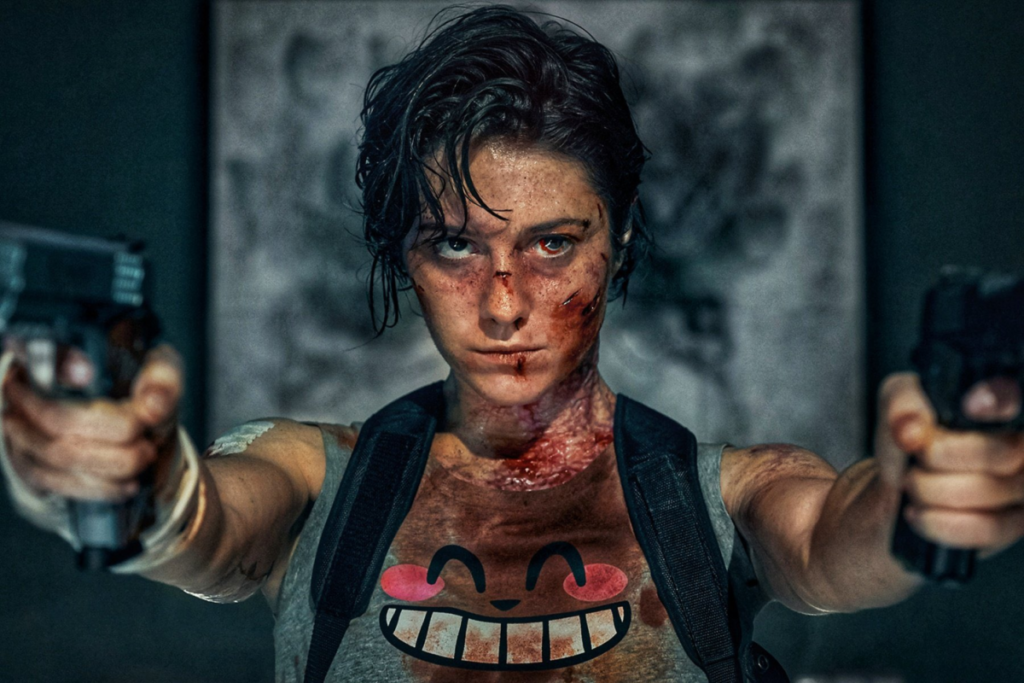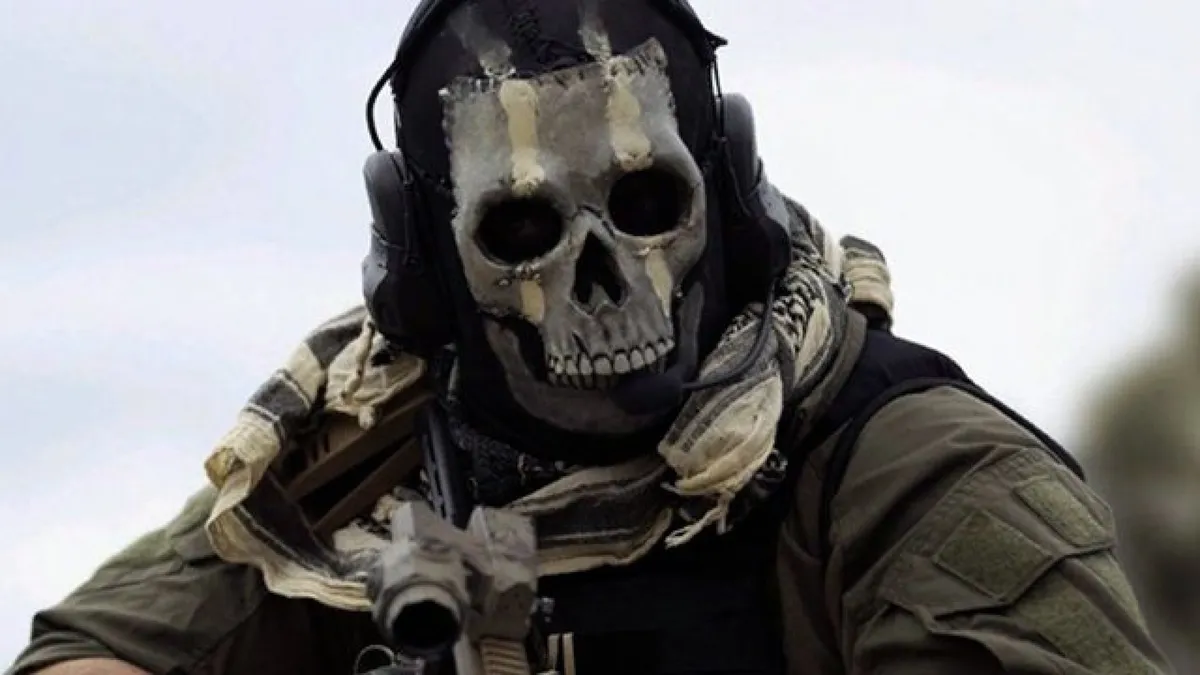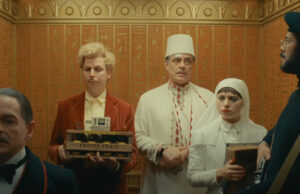When “The Hand That Rocks the Cradle” was released in 1992, it captivated audiences with its chilling portrayal of obsession, deception, and the fragile trust that holds families together. Directed by Curtis Hanson, the original film explored the psychological warfare between a family and a nanny whose motivations are far more sinister than first appears. Now, over 30 years later, the news of a remake, starring Mary Elizabeth Winstead and Maika Monroe, perhaps brings with it both anticipation and a new set of questions.
The 1992 film centered on Claire Bartel (Annabella Sciorra), a mother whose life is disrupted by the seemingly perfect nanny, Peyton Flanders (Rebecca De Mornay). As the story unfolds, it becomes clear that Peyton is seeking revenge for the destruction of her family, engaging in a slow, calculated campaign to dismantle Claire’s world. De Mornay’s performance was chilling and became iconic for its embodiment of repressed rage and psychological manipulation. With Mary Elizabeth Winstead now stepping into this role, we are set to experience a new interpretation of the character that promises to be both familiar and refreshingly nuanced.
Winstead, known for her work in films such as “10 Cloverfield Lane” and “Birds of Prey”, has a proven track record of portraying strong, complex women. Her characters often blend vulnerability with an undercurrent of resilience and inner strength, making her a natural fit for the role of Peyton. In this remake, the depth of Peyton’s character will likely be expanded to reflect the broader understanding of mental health and trauma in today’s world. Whereas the original Peyton’s motivation was straightforward revenge, Winstead’s portrayal could offer a more layered exploration of her psyche. Modern audiences, attuned to the nuances of trauma and the gray areas of morality, may find themselves more conflicted about Peyton’s actions, potentially sympathizing with her in ways that were not possible in the 1992 version.
On the opposite end, Maika Monroe’s casting as Claire introduces a fresh dynamic to the remake. Monroe, who rose to fame with her breakout role in “It Follows”, has become a new face of contemporary horror, with a knack for portraying characters who are resourceful, but haunted by inescapable circumstances. In “It Follows”, she embodied a character relentlessly pursued by an unseen force, and that experience of constant tension will likely inform her portrayal of Claire. Monroe’s ability to convey both fear and determination makes her an exciting choice to play the beleaguered mother. If the original Claire was an ordinary woman caught in extraordinary circumstances, Monroe’s Claire may be crafted to meet Peyton’s challenge head-on, imbuing the character with a sense of empowerment and agency that reflects the shifting roles of women in film.
One of the most intriguing aspects of this remake is how it will navigate the social and cultural changes that have taken place since 1992. The original film’s themes of motherhood, domesticity, and female rivalry were very much a product of its time. In the early ‘90s, the image of the perfect suburban family was still a cultural ideal, and the notion of an outsider infiltrating that sanctified space resonated with audiences. But today’s societal dynamics are markedly different, with evolving views on family structures, gender roles, and class. The question becomes: How will the remake engage with these modern realities?
For one, the portrayal of the family and the nanny’s role may be updated to reflect the more complex and diverse family units seen today. The 1992 version placed a heavy emphasis on the idea of motherhood as a woman’s ultimate role, with Peyton seeking to usurp Claire’s position as both wife and mother. In the remake, the relationship between the two women could be more complicated, exploring not just rivalry but also shared struggles or desires. The characters could be given more depth, moving beyond the simple binary of ‘good mother’ versus ‘bad mother’ to instead address the ways in which societal pressures push women into competition with each other. With both Winstead and Monroe’s history of playing layered, multifaceted characters, it’s likely that their dynamic will go beyond the surface-level tension of the original.
Moreover, the new version of “The Hand That Rocks the Cradle” has the opportunity to explore themes of power and control through a contemporary lens. In today’s world, issues of class disparity, privilege, and the exploitation of domestic workers are more visible in public discourse. Peyton’s character could be reimagined as a more sympathetic figure, highlighting how socioeconomic pressures and systemic inequalities contribute to her descent into villainy. Winstead’s ability to portray characters with a quiet simmering intensity suggests that Peyton’s motivations may be more nuanced, perhaps less about individual revenge and more about the broader social systems that failed her.
The setting, too, will play a significant role in the remake’s tone and atmosphere. The original film’s suburban setting reflected the anxieties of middle-class families at the time, where the home was seen as a sanctuary that could be infiltrated by an outsider. In the remake, this setting could be updated to reflect the increasing isolation and surveillance of modern homes. Today’s smart homes, with their security systems, cameras, and interconnected technologies, may serve as a backdrop for the remake’s tension. The sense of invasion and privacy violations could be amplified in this context, with the nanny exploiting these technological systems to her advantage.
Visually, the film’s aesthetic will be key in setting it apart from its predecessor. The original’s sleek, polished cinematography emphasized the veneer of perfection in the Bartel family’s life, which Peyton methodically dismantled. For the remake, a grittier, more stylized approach might better suit the tone of contemporary psychological thrillers, which often use darker color palettes and more dynamic camera work to create an atmosphere of unease. Directors today also tend to favor more intimate, close-up shots to draw viewers into the characters’ emotional states, and this technique could be especially effective in capturing the psychological unraveling that both Peyton and Claire experience.
“The Hand That Rocks the Cradle” remake has the potential to reinvigorate a classic thriller for modern audiences, offering new perspectives on its characters and themes. With Mary Elizabeth Winstead and Maika Monroe in the lead roles, the film promises to explore the complexities of motherhood, power, and trust in ways that feel relevant to today’s world. The tension between these two powerhouse actresses, combined with a more nuanced script and updated visual style, could make this remake a standout in the crowded landscape of psychological thrillers. By embracing the cultural shifts of the past 30 years, this new version has the opportunity to not only pay homage to the original but also carve out its own space as a thought-provoking, timely exploration of obsession and control.
No comments yet.







